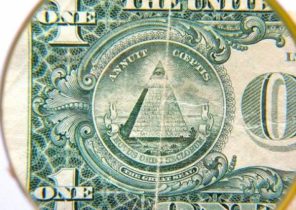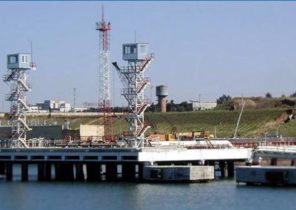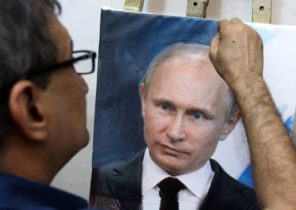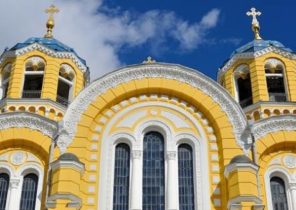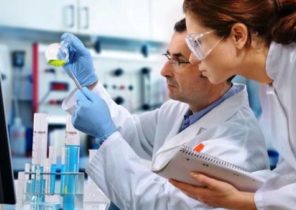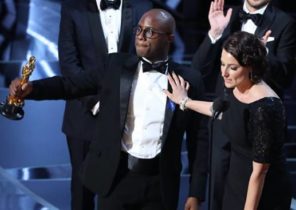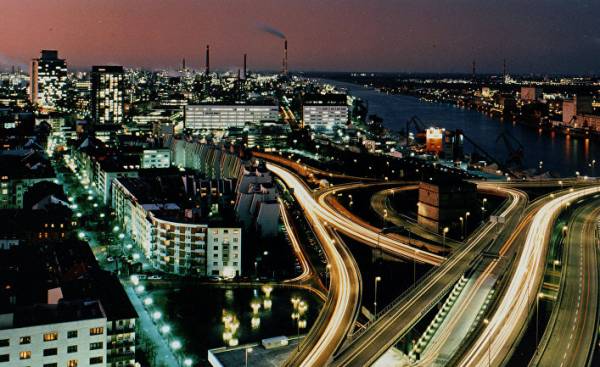
“The low point has been overcome, once again begins to grow.” Wolfgang Buchele (Wolfgang Büchele), head of the Stuttgart factory-M+W and Chairman of the Eastern Committee of German economy renewed with optimism looking to the East. And he knows why: despite sanctions, German-Russian trade in January and February showed an increase of 37% compared to the previous year, up to ten billion euros.
“As you know, sanctions are only partly have been the fault of the recession in Russia. Greater influence had a strong fall in oil prices and a significant depreciation of the ruble. And here the price of oil rose again, as the purchasing power and import”.
The visit of Angela Merkel in Sochi for the first time in two years visit Russia — Buchele sees in a positive way: “We connect with it first of all hope that she will start the resumption of dialogue”.
“The time has come to reactivate frozen bilateral and European dialogue,” said Buchele. “A long confrontation we in Europe is costly, both sides need each other to solve the fundamental European and global political issues,” says Buchele.
However, the head of M+W, he also worked in the German chemical giant BASF, Hungarian chemical group BorsodChem, the Finnish company Kemira and Director of the company for the production of gases Linde are two ways of looking at the development of the Eastern Empire.
On the one hand, Russia has managed once again to attract foreign investment, primarily because the Russian government is actively promoting localization, when the big manufacturers want to sell their products on the territory from Kaliningrad to Kamchatka. On the other hand, many companies because of the low salary costs in connection with the fall of the ruble and prices of oil see Russia and the basis for their exports of manufactured goods to third countries.
Corruption — another challenge
But with all the positive trends Buchele said: “Russia is currently stable, but this may change because the country is still highly dependent on raw materials, the middle layer is weak, the welfare has not yet come to the masses, and the issues of corruption and transparency continue to pose challenges.”
Thus, the Chairman of the Eastern Committee in the same sentence could fit almost all the problems of the Russian economy. But in the other countries of Eastern Europe, and China due to similar problems too, the situation is not the best. Still, the growth of trade turnover between Germany and Russia, he considers a positive. Due to Western sanctions against Russian banks and energy firms, as well as the Russian retaliatory sanctions against European and American agricultural products, the volume of German-Russian trade since 2014 is strongly reduced.
But agricultural sanctions, in the end, showed that trade flows have changed manufacturers after months of crisis and found new markets. “Russia is now more imports from the East, and we export more to the West.”
In addition, Büchel hopes that after the meeting, Merkel and Putin will be a progress in terms of implementation of the Minsk agreements. While I was unsuccessful all attempts to achieve disarmament in Eastern Ukraine or economic rapprochement between Ukraine and the territories of the separatists.
But not only Buchele, but German foreign policy stands for the lifting of sanctions in exchange for the progressive implementation of the Minsk agreements. But while the German economy is functioning in terms of sanctions.
Finance Minister Anton Siluanov also not too optimistic on this score. “We do not believe the lifting of sanctions,” — said Siluanov. According to him, currently, there is a sense that relations between the West and Russia improve.
And yet, relationships can’t always be bad, “pragmatism will win sooner or later,” said Siluanov. As the saying goes, hope dies last.
